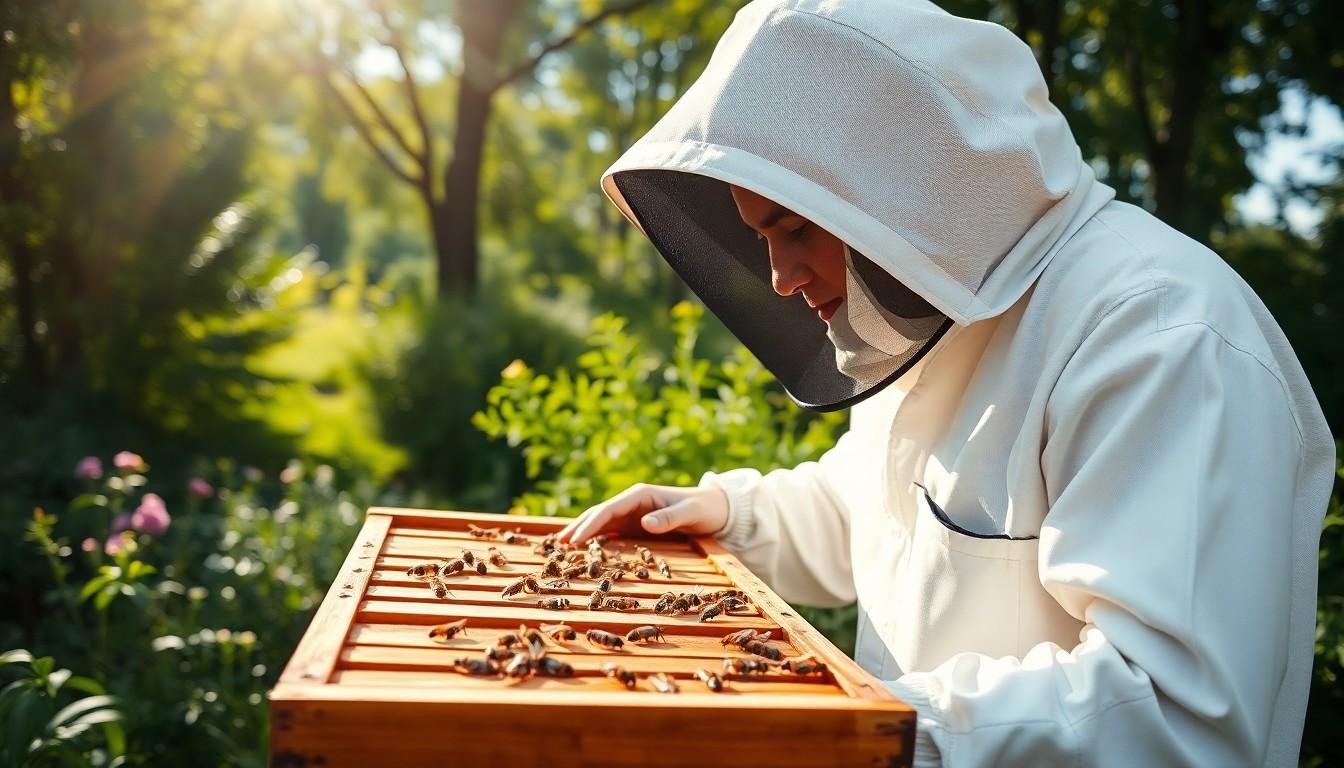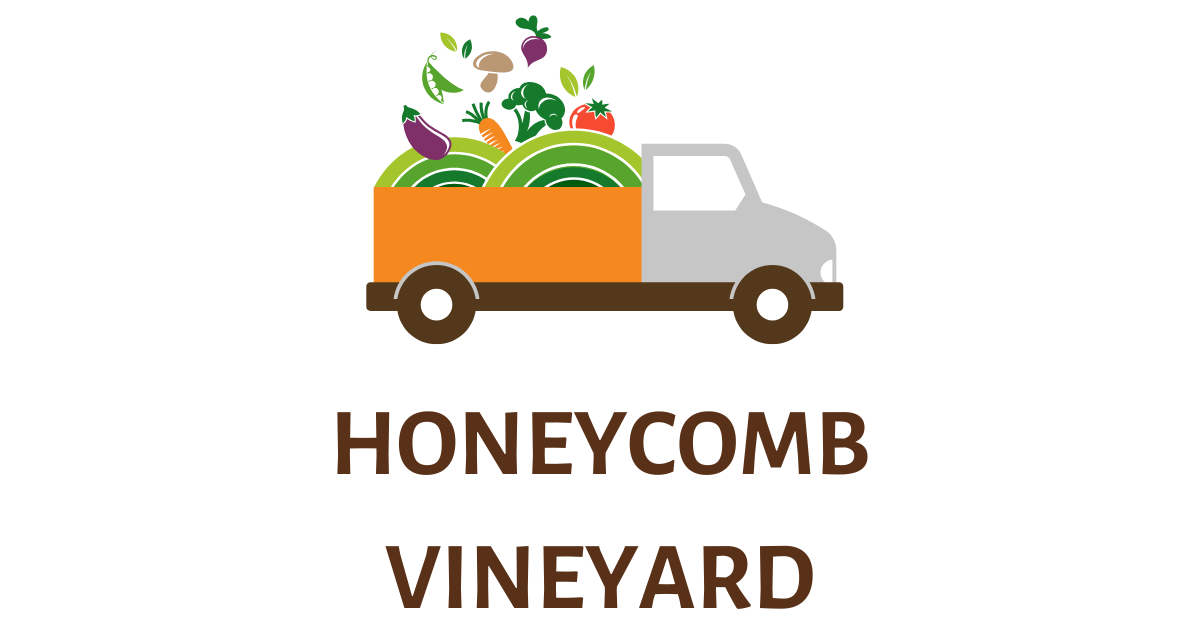The Best Fluffy Pancakes recipe you will fall in love with. Full of tips and tricks to help you make the best pancakes.

Beekeeping Books: Unlock the Secrets to Successful Honey Harvesting Today
Beekeeping isn’t just a hobby; it’s a buzzing adventure that can transform anyone into a backyard hero. Whether you dream of harvesting golden honey or just want to impress your friends with your newfound bee knowledge, diving into the world of beekeeping books is the first step. These books are like a treasure map leading to sweet rewards, filled with tips that’ll make even the most timid of bees feel like a pro.
Beekeeping Books
Beekeeping books provide essential insights for those interested in apiculture. Comprehensive resources cover a range of topics, from basic bee biology to advanced hive management techniques. New beekeepers benefit from introductory guides that simplify complex concepts, ensuring a solid foundation in the craft.
In-depth guides explore specific areas, such as honey extraction, health management, and pest control. Varieties of books exist, catering to different skill levels and interests. Experienced beekeepers frequently refer to specialized texts for the latest research and best practices.
Books can also enhance understanding of sustainable beekeeping methods, promoting eco-friendly practices. Many authors share personal experiences and case studies, making information relatable and practical. Visual guides further assist readers in recognizing bee behaviors and identifying problems within hives.
Resource availability varies widely, encompassing printed books and digital formats, ensuring access for all readers. Popular titles include “The Beekeeper’s Bible” and “Beekeeping for Dummies,” known for their detailed yet approachable content. Each book contributes significantly to a beekeeper’s journey, providing guidance, inspiration, and expertise.
Ultimately, engaging with beekeeping literature fosters a deeper appreciation for bees and their vital role in the ecosystem. By reading these books, individuals not only learn techniques but also develop a passion for beekeeping, embracing the journey from beginners to knowledgeable practitioners.
Key Topics Covered in Beekeeping Books

Beekeeping books cover various essential topics that support both beginners and seasoned beekeepers. These resources contribute to better beekeeping practices and understanding.
Hive Management
Successful hive management techniques ensure optimal colony health and productivity. Readers learn about hive placement, maintenance, and seasonal management requirements. Books provide guidance on monitoring hive activity and recognizing signs of swarming. Skills such as inspection methods and honey harvesting techniques are often included, empowering beekeepers to act when necessary. Many authors also discuss best practices for enhancing honey production.
Bee Biology
A solid understanding of bee biology significantly enhances beekeeping practices. Topics such as life cycles, anatomy, and behavior are foundational. Books explain the roles of worker bees, drones, and queens within the colony. Knowledge of pollination processes and foraging behavior helps beekeepers create supportive environments. Advanced texts delve into genetics and breeding practices, catering to readers interested in improving their bee stocks.
Pest and Disease Control
Effective pest and disease control strategies protect bee health. Essential information covers common threats like Varroa mites and American foulbrood disease. Readers find practical advice on employing integrated pest management methods. Books often highlight the importance of early detection and monitoring to prevent infestations. Insights into natural remedies and chemical treatments also support responsible beekeeping practices.
Recommended Beekeeping Books
Exploring beekeeping literature reveals important insights for every skill level. Various guides provide foundational and advanced knowledge, ensuring confident practices in beekeeping.
Beginner’s Guides
Start with beginner’s guides that simplify complex topics. Beekeeping for Dummies delivers easy-to-follow instructions for newcomers. This book covers essential beekeeping practices, bee biology, and equipment selection. Another excellent choice, The Backyard Beekeeper, walks readers through setting up a hive and understanding bee behavior. Both resources emphasize hands-on advice, making it easier for novice beekeepers to get started. Illustrations assist in visualizing key concepts, ensuring a smooth transition from theory to practice.
Advanced Techniques
Advanced texts dive into specialized areas of beekeeping expertise. The Beekeeper’s Bible offers extensive details on hive management, honey extraction, and bee health maintenance. This comprehensive resource integrates science and artistry, appealing to seasoned beekeepers. Honeybee Democracy explores the decision-making process within bee colonies, offering unique insights into their behavior. Both books equip experienced beekeepers with cutting-edge techniques that enhance productivity and sustainability. Engaging with these titles fosters a deeper understanding of complex topics, ultimately benefiting their beekeeping practices.
Notable Authors in Beekeeping Literature
Several key authors in beekeeping literature stand out for their contributions. Ginger MacDonald’s “The Backyard Beekeeper” offers practical advice for novices. This book simplifies complex concepts, making it accessible for those just starting.
Additionally, Norman Gary’s “The Honey Bee” presents a comprehensive exploration of bee biology. It delves into the fascinating life of bees, enhancing readers’ understanding of their behavior and social structure.
Another notable author, Kim Flottum, brings invaluable insights with “Better Beekeeping.” This resource focuses on hive management techniques, covering everything from seasonal management to pest control strategies.
Thomas Seeley’s “Honeybee Democracy” analyzes the decision-making processes within bee colonies. Readers gain deeper insights into how bees communicate and make collective choices, enriching their appreciation for these insects.
For those interested in organic approaches, “Beekeeping Naturally” by Keith Delaplane emphasizes sustainable practices. This book guides beekeepers in maintaining healthy colonies without chemicals.
Moreover, “The Beekeeper’s Bible” by Richard A. Jones combines tradition and modern beekeeping practices. Its extensive coverage includes recipes and historical references, serving as a cultural resource.
Lastly, the American Beekeeping Federation frequently publishes works by various experts. Their collective knowledge helps disseminate best practices and emerging research in beekeeping.
These authors and their books cater to various skill levels, ensuring all beekeepers find resources that fit their needs. Exploring their contributions equips beekeepers with the knowledge required for successful hive management.
Beekeeping Literature
Exploring beekeeping books opens up a world of knowledge for anyone interested in this rewarding hobby. These resources not only provide essential techniques but also inspire a deeper connection with the environment. From beginner guides to advanced texts, there’s something for every beekeeper.
As individuals dive into the pages of these books, they’ll discover practical advice and innovative practices that enhance their skills. The journey through beekeeping literature can transform novices into confident beekeepers, equipped with the insights needed for successful hive management. Embracing this wealth of information fosters a greater appreciation for the indispensable role bees play in our ecosystem.
